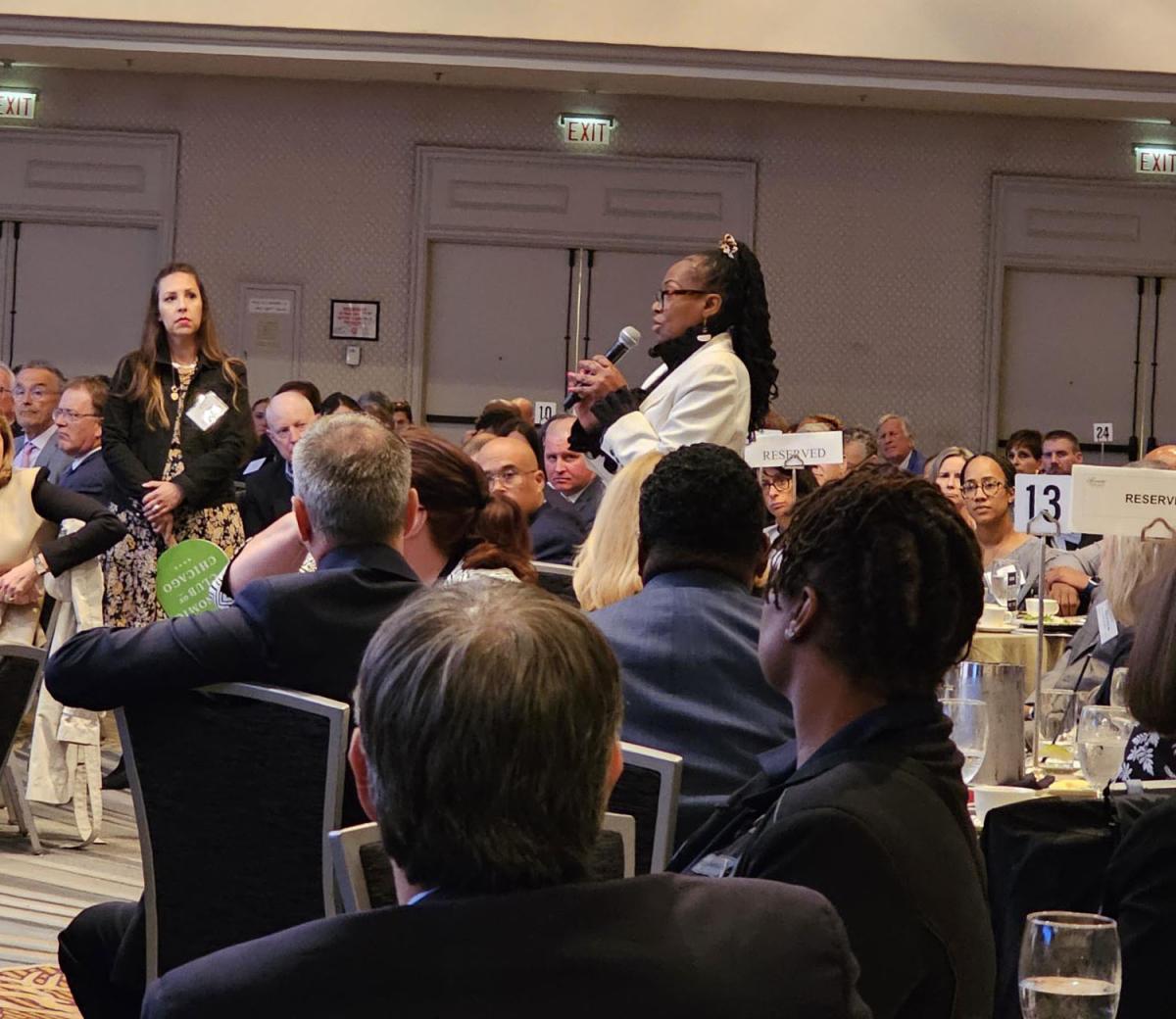I went to a meeting of The Economic Club of Chicago yesterday, the business community’s first opportunity to discuss the findings of the Public Safety Task Force convened by the Civic Committee. The Task Force produced five recommendations, including partnership with Community Based Violence Intervention (CBVI) groups, increasing employment in disinvested areas, enhancing community development, and improving law enforcement infrastructure. The goal is ambitious, a 50 percent reduction in homicides and total shootings within five years and a further 50 percent reduction within ten years, bringing Chicago to a level consistent with New York City and Los Angeles. What I heard today from the panel of speakers (Hyatt CEO, Mark Hoplamazian; BMO CEO, Darryl White, Deputy Mayor Garien Gatewood, Arne Duncan former Secretary of Education and former Chicago Public Schools Superintendent) was as follows:
- Stop The Next Shooting—At present, only 10 percent of the homicides are solved. Many of the shootings are for revenge. We need to preempt this circle of violence by interceding with high-risk youth, getting them into intervention programs.
- Drugs Are Not the Primary Problem—The economics of the drug trade have changed, with very few making money from drug dealing. Car theft, credit card scams and old-fashioned stick-ups are the biggest issues, according to Pastor Corey Brooks, who runs Project H.O.O.D. in Englewood.
- School Drop-outs—There are 25,000 kids of high school age who are not in school. Pastor Brooks told me that they drop out because they cannot read or write, get frustrated at the accelerated workload and quit education in favor of criminal activities. Ninety percent of the shooters or shooting victims fall into this group of dropouts.
- CBVIs Focus on 20 Plus—There is real benefit in identifying high risk individuals and getting them a paying job where the income is comparable to what could be earned through crime. Pastor Brooks told me that the CBVIs focus on those who are 20+, but that there is a huge under-served group of 14–20-year-olds. Pastor Brooks starts with kids at 6-7 years old; he has room for only 100 kids in his present building but plans to increase his program by 5x when his new facility is completed. (There is a Project Hood Benefit in Chicago on Friday night; I am dinner chairman; Ken Griffin of Citadel is the honoree)
- The Role of the Police—There are several theories about why the Chicago Police seem unable to stem the flood of shootings. Arne Duncan cited police ineffectiveness in relationship building with the core 18–24-year-old male constituency. Another is the Blue Flu, the step back approach to policing since the fatal shooting of Laquan McDonald. The Task Force spoke about restoring community trust plus work force optimization, putting police where they are most needed.
- Role of Private Sector—There needs to be direct involvement in the disinvested communities, not simply donations from corporate foundations. There are several examples of companies stepping up. Discover has put 2,000 call center jobs into the South Side, with excellent results. ITW plans to build a new factory in Austin creating hundreds of manufacturing jobs. BMO has an Empower program that offers $5 million in loans and grants to minority owned small businesses trying to enter corporate supply chains. The goal is 20,000 new jobs in the next five years in these challenging areas.
- Behavioral Health—One of the underappreciated aspects of crime prevention is mental health. The Partnership for Safe and Peaceful Communities is a coalition of 50 NGOs. It collects funds centrally, then distributes grants to 250 grassroots organizations. There is also a partnership with Mayor Brandon Johnson and the City of Chicago to offer activities between Memorial Day and Labor Day when kids are off school, from community gardening to music to sports. Edelman will also continue its work with the City of Chicago on the mental health program Unspoken, which encourages residents of the city’s 77 communities to speak up and seek help for mental health counseling and related services.
Hyatt CEO Mark Hoplamazian, who will be co-directing the private sector’s participation in this all-important campaign, put it bluntly: “The top question for travelers to Chicago is public safety. This is also a major challenge for recruiting top talent. It is the private sector’s responsibility to be all in.” The Public Safety Task Force is asking Chicago companies to contribute $100 million in the next year to fund these initiatives. Edelman agrees with the partnership principles of Transparency on Results, Engagement with the Communities at risk, plus Collaboration and Trust. My brother John, who is Managing Director of Edelman’s Global Engagement and Corporate Responsibility work, will lead our donation effort through the Edelman Foundation, and will welcome any Edelman employee who wishes to participate in this vital work.
Richard Edelman is CEO.








